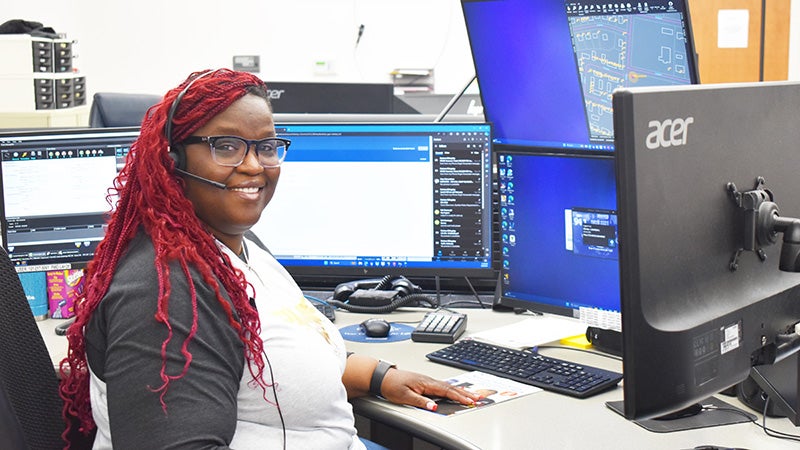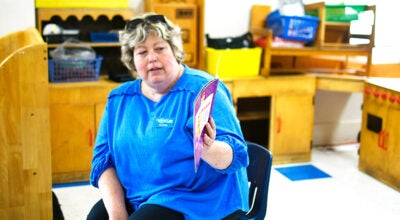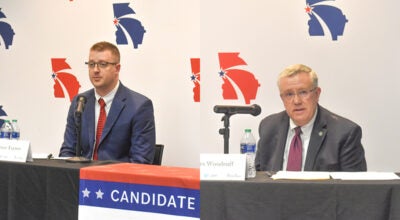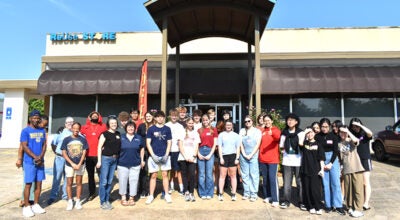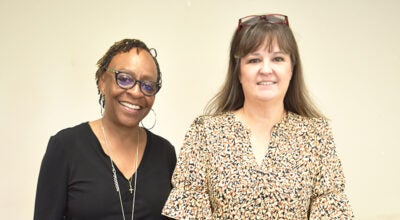PROGRESS 2024: The unsung heroes of emergencies: A day with 911 dispatchers
Published 2:00 pm Saturday, March 2, 2024
|
Getting your Trinity Audio player ready...
|
Hectic. Fast-paced. Overwhelming. Rewarding. These are a few of the words that people use to describe the life of a 911 dispatcher. A calming voice on the other end of the phone; a nameless and faceless presence in a time of crisis. That’s the role of a 911 dispatcher to a caller on what has unexpectedly become the worst day of their life.
Did you ever wonder who is on the other end of the phone?
Latosha Darden, a LaFayette native, has worked as an emergency dispatcher in Chambers County for the past 28 years. She began her career working at the LaFayette Police Department taking calls.
Before 1968, calling for help in an emergency would have been very different.
Two years before, the National Academy of Sciences reported on the epidemic of accidental death and injury caused by motor vehicle crashes.
The report sparked many conversations on emergency services, including the concept of creating a single, nationwide number that could summon an ambulance. Before that, people had to call a local 7-digit number for each service, ambulance, police and fire.
The first 911 phone call ever made was by an Alabama senator in 1968 after the creation of the World Emergency Services.
For over 50 years, the nationwide system has continued to improve and evolve with the advancement of technology, and Chambers County has been no different.
In 1998, the county centralized its emergency call system and moved operations into the current Chambers County 911 Communications Center in Lanett.
Many people don’t think much about the voice on the phone, but dispatchers are often the very first responders to most crimes and emergencies. They coordinate which emergency services to send and instruct the caller on what to do.
Since the county 911 converged, Darden’s office takes calls from every police department and the sheriff’s office. They also dispatch non-emergency calls that come in for city and county offices.
They answer around 200 calls a day.
Even people who get hired for the position don’t really realize the demand of the job, Darden said.
“We get calls from the interstate. We transfer them to West Point, we transfer them to Lee County,” she said, noting that sometimes they dispatch calls for people who don’t speak English.
Darden has seen many coworkers come and go over the years. The job is stressful, fast-paced and often overwhelming. Dispatchers need to be able to work under that pressure and handle speaking to people in all different kinds of emotional states. Often, they are calling in their most emotional and volatile moments.
Unfortunately, other times they get calls from misguided or even flat-out hateful people.
“It is not for the weak. You got to have a backbone,” Darden said.
She remembered one day when a young coworker had a caller who used a slur while talking to her. Obviously, she was shocked by it. Darden told her to take a break and helped her to calm down.
“You can get everything in this line of work,” Darden remembered saying.
Another way to describe the work of a dispatcher is teamwork. Every second counts in an emergency, and Darden knows better than most that you have to know and trust your teammates in the field and on the other end of the phone line.
“Teamwork makes the dream work,” Darden said.
Darden said one of the most important aspects of the job is to develop positive relationships with local law enforcement and first responders.
“We’re with them more than we are with our own family, and that’s vice versa with them,” Darden said. “Because we work a four on, four off, 12-hour shift.”
If there was a piece of advice Darden could give new dispatchers, it would be to get to know the first responders in their area. She said the relationships she has built over the years have made all the difference.
“You just can’t come in and just be serious all the time,” she said. “You have to break the ice and make them feel comfortable.”
Darden is the Lanett primary dispatcher, though she is often helping out where needed. All of the dispatchers, led by Communications Supervisor Darlene Billingsley, work together to keep the ship sailing smoothly.
If you’ve ever heard a scanner or police radio, you’ve probably heard some of the codes that dispatchers use to communicate quickly and efficiently with first responders. Dispatchers have to learn what’s called the National Crime Information Center (NCIC) Code.
Darden said memorizing addresses and phone numbers also became a habit, especially during COVID-19. In Chambers County, the 911 center was in charge of tracking COVID-19 cases and deaths.
“When you’ve done this so long, it sticks,” Darden said. “I can’t remember names, I can remember a phone number.”
Darden remembered seeing a list of addresses written on a door in dry-erase marker for months. During that time, the call volume became astronomical, she said. On top of the usual emergencies, many people in the county called when they were scared they might have COVID-19.
“It just went off the roof. We have to keep paperwork with the addresses of all the people,” she said.
Those days were more hectic than ever. Darden said everyone’s lives were touched in one way or another. She ended up having to call 911 from home one day. She had contracted COVID-19, which led to pneumonia.
“It kind of took a toll on a lot of people,” Darden said. “Because that first week of COVID, I think it was two friends and then a cousin.”
When it comes to the really hard days, Darden said it’s important to have someone you can turn to to get things off your chest.
Darden’s motto is when she leaves for the day, she leaves the work behind. She said she tries to reassure her coworkers that they did all they could for the calls that stay with them. Luckily, Darden goes home to a full life that keeps her busy.
With her youngest child still in high school, Darden also has an active role in the school system. Darden has made a habit of making friends wherever she goes, which helps build those connections with others in the community she is likely to encounter at work.
“My daughter’s always telling me, ‘You just speak to everybody. You don’t meet no stranger,’” Darden said. “I really don’t. But I just love helping people.”
Darden has a close relationship with her daughter Jayda. Whenever she has a weekend off, she always makes sure to be at every afterschool activity and have a good time with Jayda and her friends. Even with her son who is now grown up and out of high school, she has always felt it was important to be someone who her children and their friends felt comfortable talking to.


